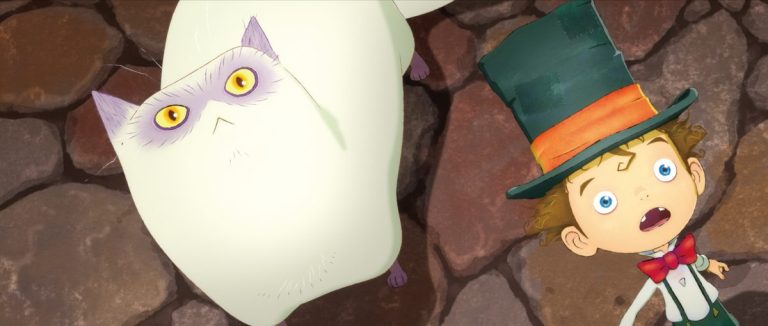Red Earth (2023) Movie Review: The surge of the pandemic in 2020 robbed us of the pleasure that comes with a good theatrical experience. What it could not take away was the unexpected surprise that comes with the discovery of a small and independent film with people behind the camera who have larger-than-life ideas. It is also something that I don’t consider anything less than a gift because it has been one of the cornerstones of my journey of writing about cinema and loving the process.
In the wake of tragedy, isolation, and the singular thrill of exploration, came a small but brilliant indie gem, a swan song called Last and First Men. It was the directorial debut feature (and unfortunately, also the last one) of Icelandic composer Jóhann Jóhannsson, who passed away in 2018. It was a sharp yet slight memoir, a science-fiction ‘documentary’ of mythical proportions with an incredible earth-bound quality to it. The narration by Tilda Swinton alone was so reassuring an experience that the film became one of the best of the year. If you have seen the film, it’s impossible not to remember it while watching Red Earth, the latest film by director Georg Koszulinski.
This similarity, though, is mostly limited to the form (or the apparent formlessness). The disjointed and scratched images, the text cards, and the dual narration convey more fictional, futuristic, and dense meanings. It follows three generations of Martians from different yet intersecting walks of life and the interplanetary war following the inhospitable conditions of life on Earth. Basically, destructive imagination has been used to chart the collective sense of vision and memory out of a father, a daughter, and the daughter’s son. A dystopian science-fiction fabric wraps underneath a subtle and familial one.
The singular focus on the Anthropocene is worth admiring here. It is a much-debated geological epoch, and translating a proposition in visual and cinematic terms is something that is fruitfully achieved by the film. In fact, the film’s sole strength lies in the way it has been mounted. The hybrid of fictionally staged and otherwise documented and raw footage is substantially strung together, and it moves with a rhythm that is real rather than imitated. I enjoyed taking in the sepia-soaked scenes of Mars. The intermittent shots of trees enveloped by fog and water coming down from streams work like a balm. In a rarity, the excess of fuzzy radiographs is more fascinating than irritating.
However, the approach towards this intellectual, scientific fabrication is so specific and single-minded that Red Earth almost immediately loses its emotional tangibility. I don’t expect palpable sentimental conflicts in a film that is essentially at odds with it. Still, there is always some amount of feeling that coherently glues together the strands of the beholder’s interest, which is obviously not strong enough here.
At some point, the film does seem like it is moving towards a more grounded and earthly approach towards talking about the moving nature of the relationship between Komei, the refugee-turned-rebel and resilient (yet suitably vulnerable) woman who is also the human we see the most in between the expansive shots of red roads, skies and mountains, and Telos, the world-wise yet broken scientist who is her father. But the dozen text cards explaining the development on-screen take us away from it. The thing is, none of the things written in white on the black background actually stick with you, and feel like (those occasionally drab) ChatGPT prompts more than anything else.
Also, what doesn’t help is the conscious and supposedly slender decision to avoid a broad confrontation of Kasei’s relationship with Thomas, a missionary of Mars on a fading Earth. The hinted complexity of the latter is crushed to navigate the experiences of the former, which on a fine day would not have been a problem. However, the performance by Christina Leidel is too slight, nearly weightless, so much so that it cannot carry even basic narration. Mostly, it is a sincere attempt by her, bogged down by the limitations of the script.
Perhaps the biggest- and the most unmistakable folly – of Red Earth as a film is that it thinks a lot and yet, don’t leave enough questions unanswered, which is one cardinal sin for a film wrapped in ambiguity. While not uninteresting, it weaves a science-fiction yarn that is way easier to admire from a distance than to embrace. It seems to be set in this alternate universe where ‘marvel’ and ‘mediocre’ are actually synonyms.





![Daddy Longlegs [2009] Review: The Most Personal Safdie Brothers Films](https://79468c92.delivery.rocketcdn.me/wp-content/uploads/2020/07/EB20100609REVIEWS100609977AR-768x432.jpg)

